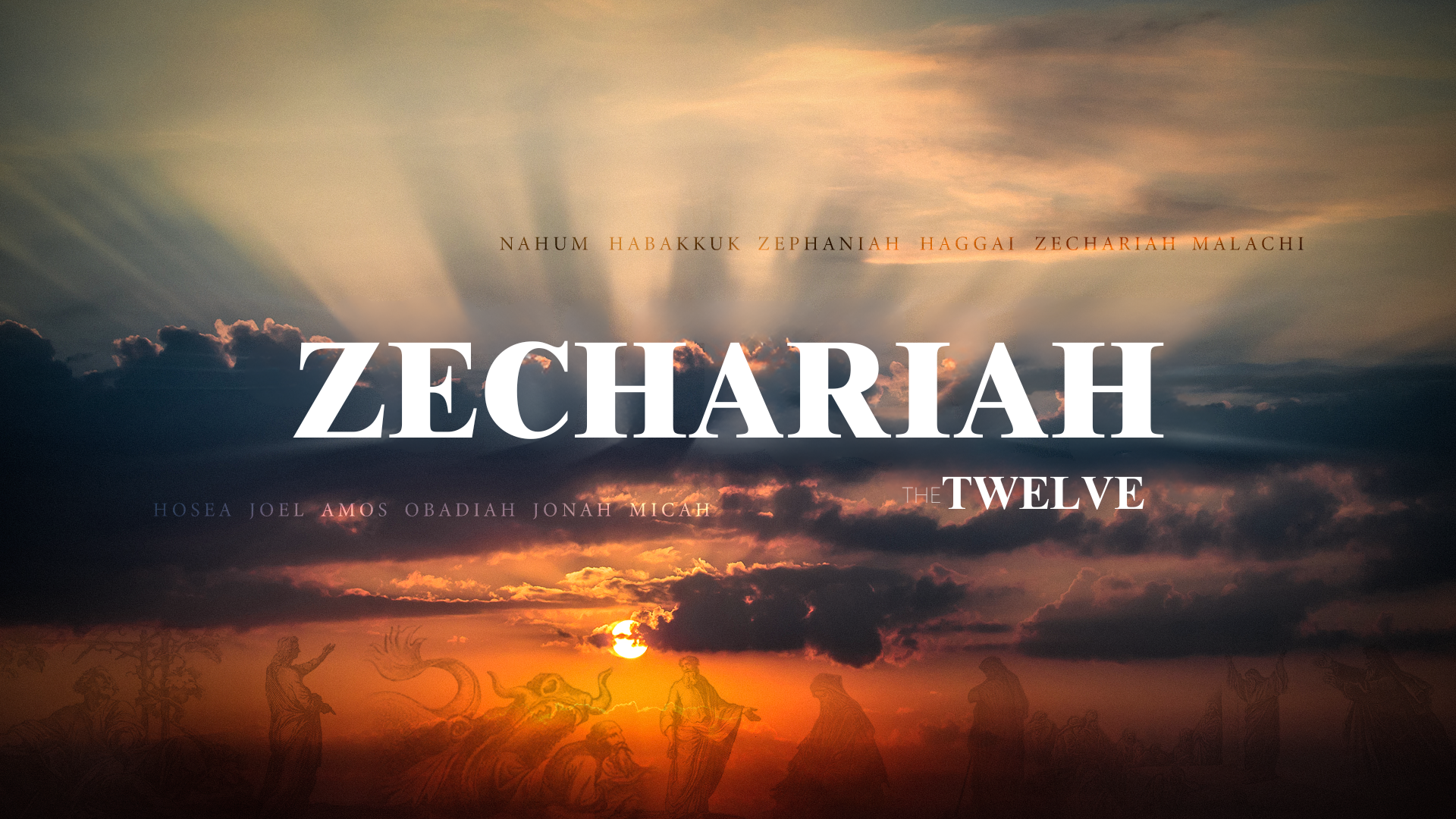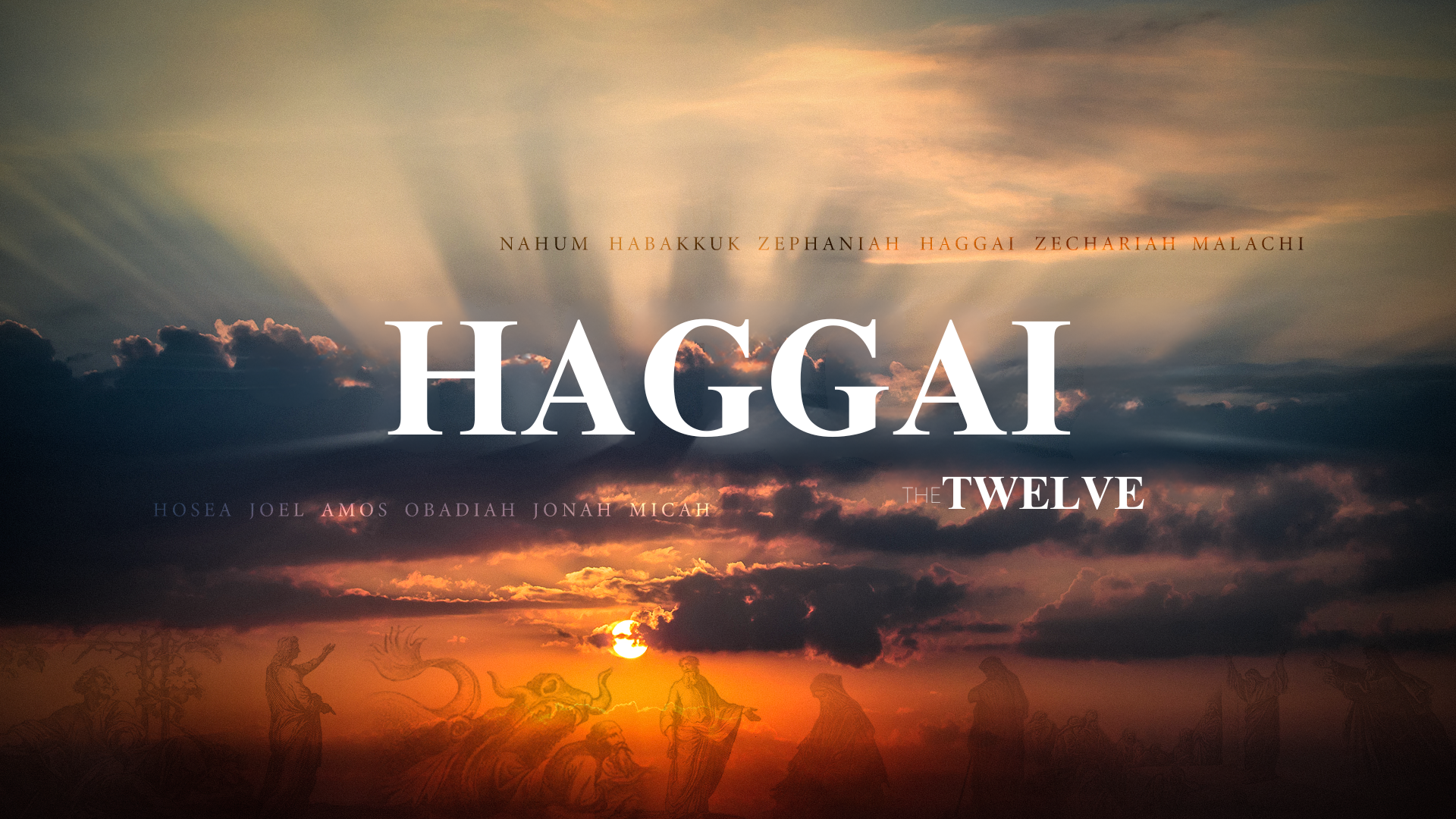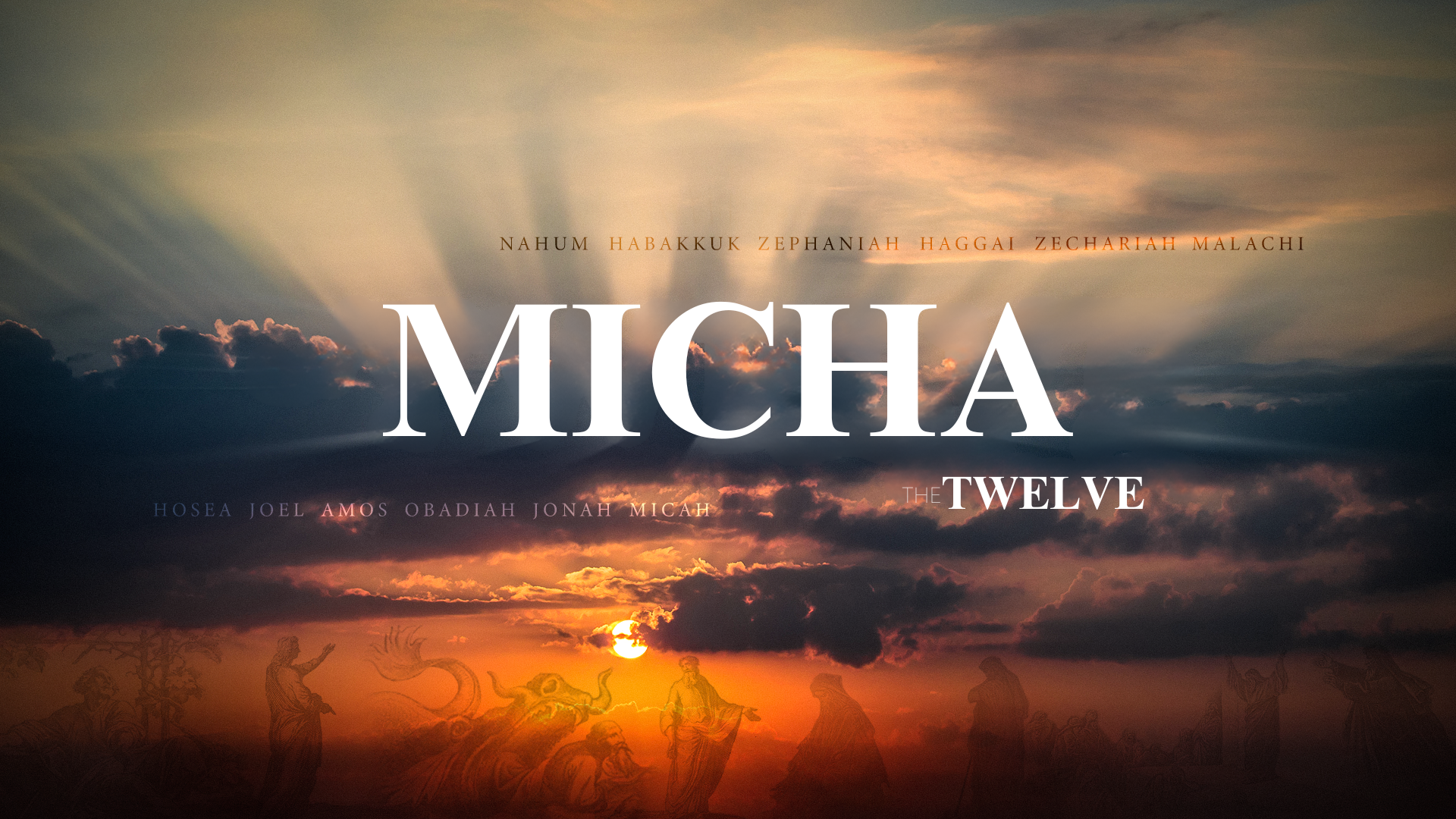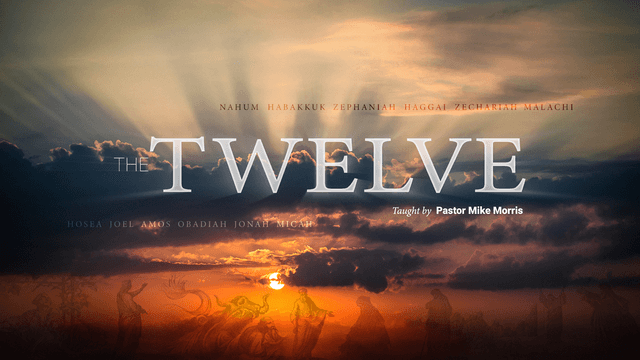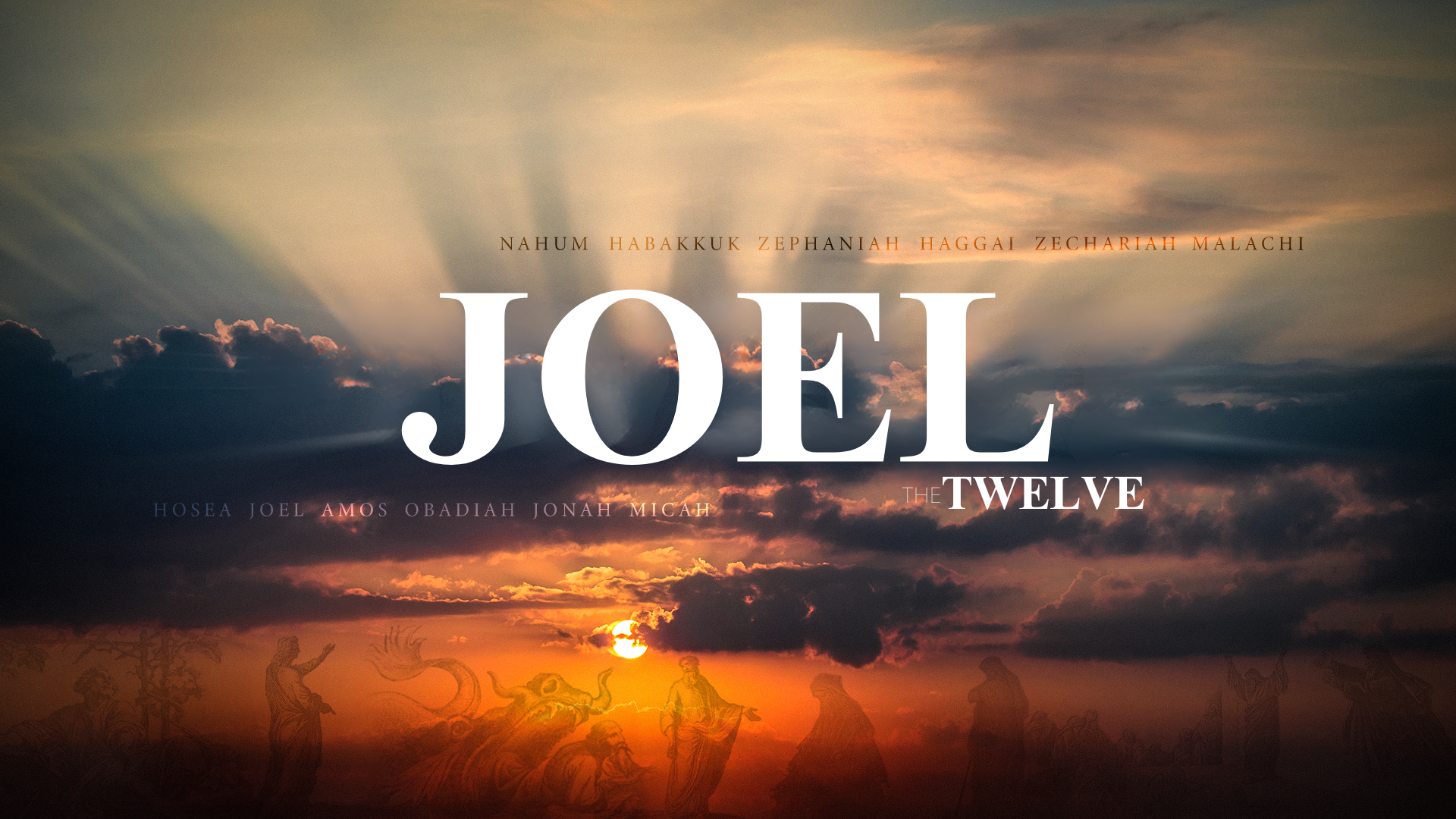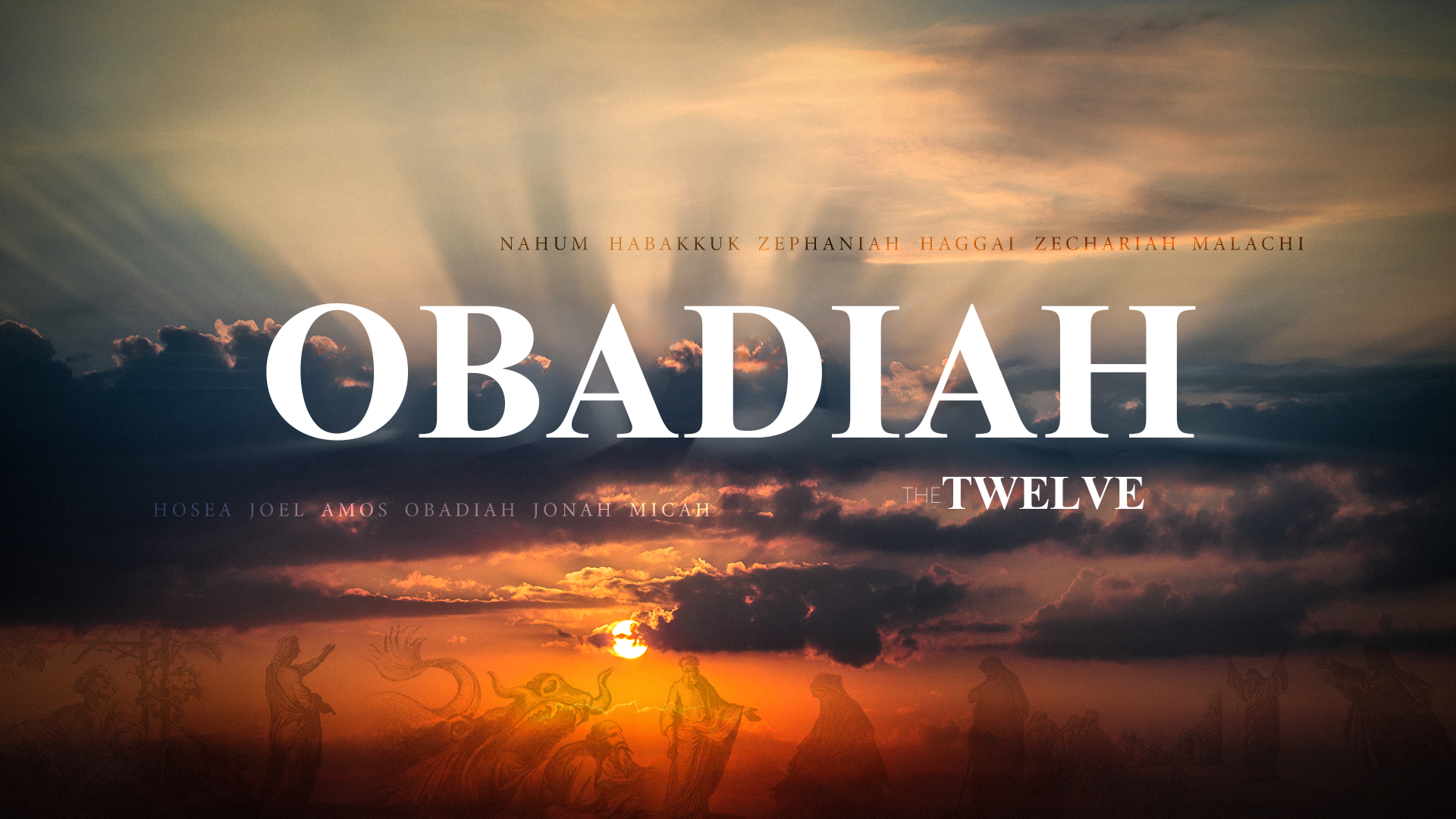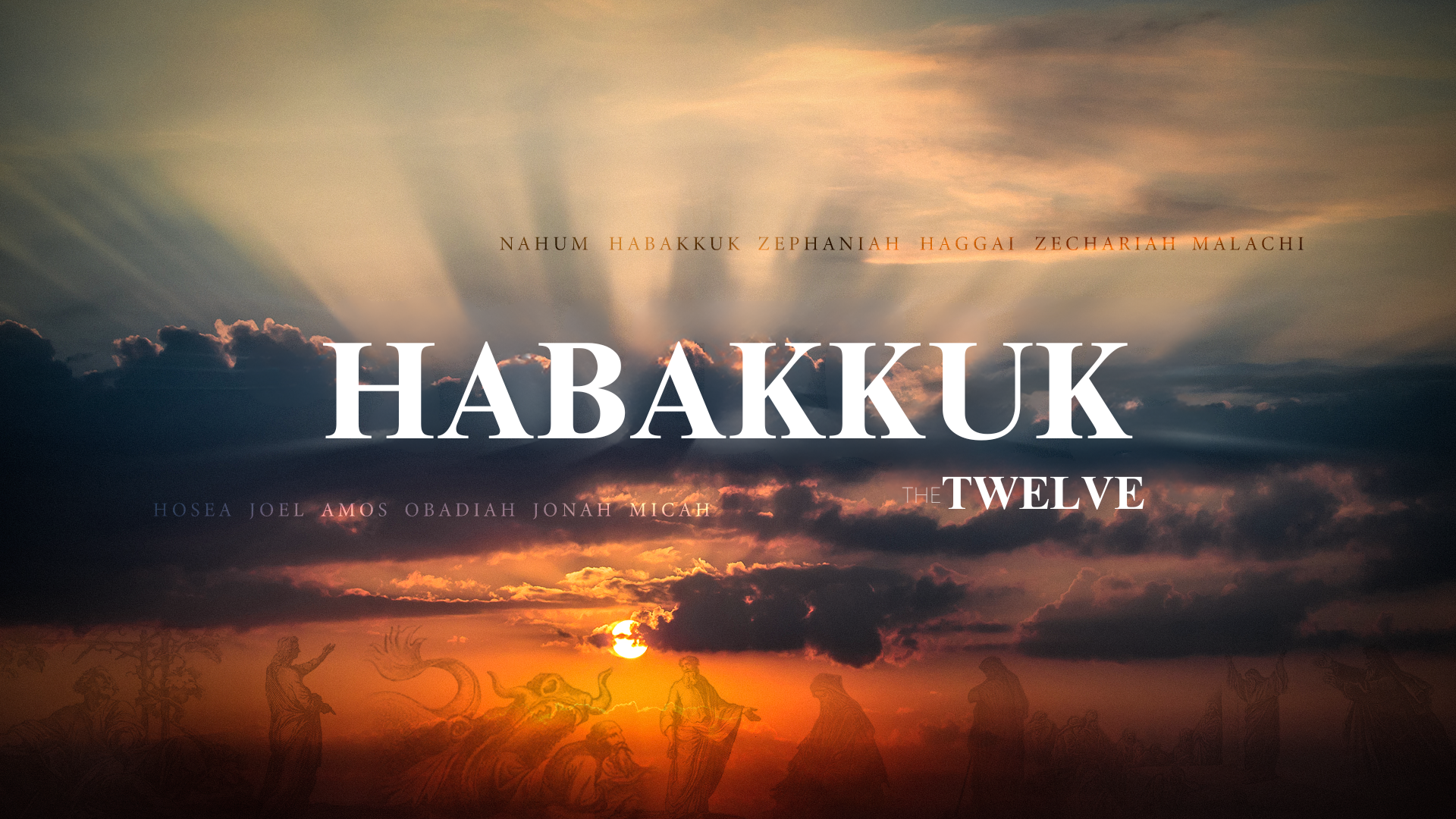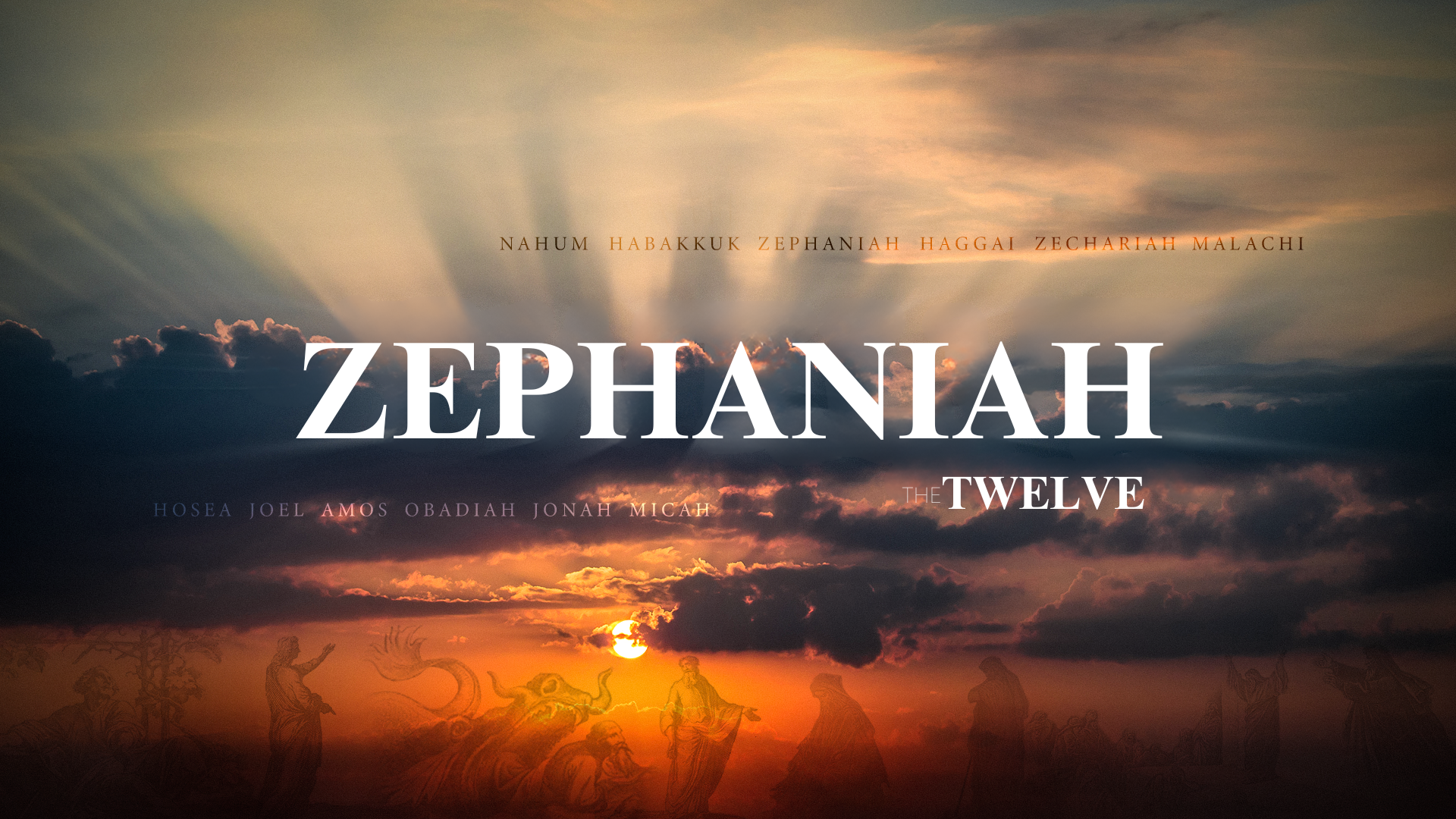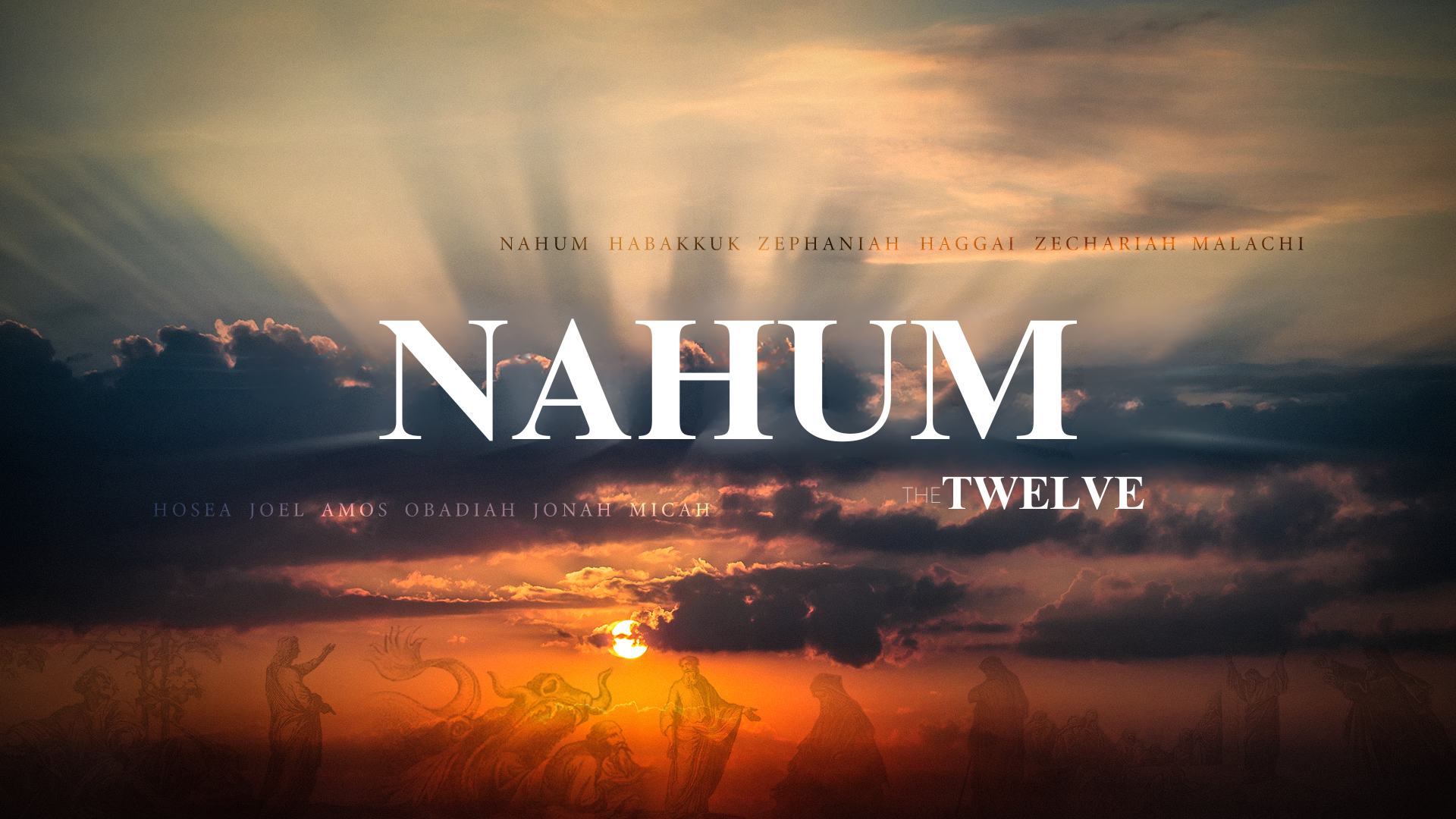MANUSCRIPT
The book of Micah is the transitional prophecy of the Twelve...he’s the prophet that God raised up to speak to both Israel and Judah...at different times in their national lives, but to both kingdoms nevertheless...content certainly reflects that...including him on both timeline slides to reflect that distinctive ministry...
Last week was the beginning of the restoration portion of the second oracle...highlighted by the exaltation of Jerusalem in “the latter days,” the streaming of the nations to the mountain of the highest, universal peace among humanity, and the universal kingship of Israel’s God...let’s remember the context of Micah and his prophecy with regard to Judah...about 135 years before the beginning of the exile of Judah into Babylon...
Now in the rest of chapters 4 and 5 the prophet expands on the “restoration” portion of the oracle...we saw last week the overview, if you will, of God’s restoration of the dominion and glory of Jerusalem and His people...today we see the details of His works as He will accomplish that which He purposes...we’ll begin today with chapter 4 verse 6, but before we do, let’s think about a framework for the rest of this chapter...thus far, God has promised that He would not abandon Jerusalem and His people, but that in the latter days, He would restore them, and they would “walk in the name of the Lord our God forever and ever”
Here in chapter 4, Micah quotes the Lord as He provides understanding about how this restoration would be brought about, how the Lord works to both discipline and restore His people...let’s jump into the text...
6 In that day, declares the Lord,
I will assemble the lame
and gather those who have been driven away
and those whom I have afflicted;
7 and the lame I will make the remnant,
and those who were cast off, a strong nation;
and the Lord will reign over them in Mount Zion
from this time forth and forevermore.
What does this restoration look like? Let’s see...
He will claim for Himself a remnant of His people
He will restore that remnant to their “former dominion”
The remnant of Israel will experience judgment and exile, specifically in Babylon
But that the Lord will rescue that remnant from Babylon, though their enemies will continue to hate and oppose them
This will come about though the world does not know or understand the thoughts and plans of God
And that ultimately, Jerusalem will destroy their enemies by the power of their covenant God
What an encouraging statement of assurance from the Lord...I’m sure those in Israel were eager to know more about their restoration, and the Lord gives them a timeframe...”in that day” can only refer to the previous timeframe statement, “in the latter days”...so we know it’s a future time, but exactly when, we are not told...but we know this...the Lord has spoken it, so we can be assured that He will bring it to pass, and we know that it will be consistent with the description of the messianic age He reveals in verses one through five
“In that day” He says, He will accomplish three things...
He will gather His people...look at the verbs in verse 6...”I will assemble” and “I will gather”...God will take it upon Himself to bring His people back together...and as we look for the answer to the question of “who” will be gathered, we see an interesting description...they are the lame, those who have been driven away, the afflicted...in other words, He gathers them together when they are at their weakest and least capable...those who cannot walk without a limp...those who are far removed from their homeland...this verse brings to mind a lost flock of sheep, alone in the wilderness, without a shepherd to care for them...now the Lord says, “I will be their Shepherd once more” -- He will assemble them together into a flock...the afflicted ones, those who were driven away, the weak and lame...the sheep no one else wanted...
And when God has gathered His people, He will transform them... 7 and the lame I will make the remnant, and those who were cast off, a strong nation; those driven away into exile and afflicted, as we just saw in verse 6...but by God’s Hand, this collection of weak, lame, afflicted cast offs will become the remnant and a strong nation...His incomparable power to raise up and restore is the basis for His promise to Israel...
And having gathered them and transformed them, God will reign over them as their Sovereign King...again reigning from Mount Zion in Jerusalem...forevermore...they shall be His people completely, as they were always intended to be...Jeremiah 30.22 will be fully and eternally true...And you shall be my people, and I will be your God.”...the flock has been gathered and changed into a remnant of strength, no longer in weakness, and their great and good Shepherd-King shall rule over them in righteousness and love...
I just want to pause for a moment here and address this notion of the “remnant” ...it’s an important idea in Scripture...used in English 83 times in the ESV, the Hebrew word is lis-e-rit (shay - reet’), which means remainder, or what’s left over...in context, when used of groups of people, both Israel and other nations, the word is nearly synonymous with “survivors”...for example, Jeremiah 23.3...
3 Then I will gather the remnant of my flock out of all the countries where I have driven them, and I will bring them back to their fold, and they shall be fruitful and multiply.
Another example is Isaiah 10.20-22a...
20 In that day the remnant of Israel and the survivors of the house of Jacob will no more lean on him who struck them, but will lean on the Lord, the Holy One of Israel, in truth. 21 A remnant will return, the remnant of Jacob, to the mighty God. 22 For though your people Israel be as the sand of the sea, only a remnant of them will return.
Paul uses this idea of a remnant from Isaiah and the return of the remnant to Israel, and quotes Isaiah in Romans 9, expanding on the idea in Romans 11.5-6 as it relates to the Jewish people...
5 So too at the present time there is a remnant, chosen by grace. 6 But if it is by grace, it is no longer on the basis of works; otherwise grace would no longer be grace.
As Paul understands the future of the Jewish people in Romans 9 through 11, he sees the Old Testament use of the word and brings it forward to his present day, and to ours...there is a remnant of the Jewish people who are chosen by grace...and Micah’s use of the word is an important contribution to our understanding of this truth throughout Scripture...
The Lord will keep for Himself a remnant...He will gather, transform, and reign over His people from Mount Zion...He expands on that promise in the next verse...
8 And you, O tower of the flock,
hill of the daughter of Zion,
to you shall it come,
the former dominion shall come,
kingship for the daughter of Jerusalem.
There are some interesting phrases in this verse...”tower of the flock” is only used here in Scripture, and, in context, likely represents the watchtower near the sheep gate of Jerusalem, on the southeast side of the Temple Mount...from this vantage point, guards could oversee the flocks as they came and went in and out of the city...the next phrase we can identify with certainty based on its OT uses...”hill of the daughter of Zion” is Jerusalem, specifically the location of the Temple...Isaiah 10 speaks to the eventual judgment by God of the Assyrian invader of Judah...in verse 32, the Assyrian leader is frustrated at his inability to conquer Jerusalem...
he will shake his fist
at the mount of the daughter of Zion,
the hill of Jerusalem.
“daughter of Zion” is used frequently in English in the OT...in the plural “daughters” it generally means women, but in the singular, as here in Micah, it means the city of Jerusalem...Psalm 9.14
that I may recount all your praises,
that in the gates of the daughter of Zion
I may rejoice in your salvation.
And the messianic prophecy of Zechariah 9.9...
Rejoice greatly, O daughter of Zion!
Shout aloud, O daughter of Jerusalem!
Behold, your king is coming to you;
righteous and having salvation is he,
humble and mounted on a donkey,
on a colt, the foal of a donkey.
Both Matthew and John pick up on this prophecy at Jesus’s triumphal entry into Jerusalem...Matthew 21.5...
“Say to the daughter of Zion, ‘Behold, your king is coming to you, humble, and mounted on a donkey, on a colt, the foal of a beast of burden.’”
Here in Micah 4, the point is that the glory of Jerusalem in the days of the united monarchy, under David and Solomon, before the sinful apostasy of the divided kingdom, will be restored and more...ultimately their “former dominion” will be renewed and the kingship reinstated in Jerusalem...the flock that was lame and lost, driven away, afflicted without a shepherd, will again be the people of the great Shepherd-King of God...what a stunning message of hope for the nation...they would not always be lost and alone, in exile from their homeland, buffeted by the stronger nations around them...instead, they had a hope, as we saw last week, a hope that their covenant God would gather and restore them...that again they would be His people, in loyal love, as they had been long ago...with their Lord in honor and dignity once more...
God promises that He will gather His people, change them, reign over them in triumph...the former dominion will return...but before that day comes, the people of God would pass through a season of judgment...and while the restoration of the people and their dominion was a glorious hope, it was a future hope...Micah has a darker word for the nation in the nearer present...look at verses 9 and 10...note the first word: “now”
9 Now why do you cry aloud?
Is there no king in you?
Has your counselor perished,
that pain seized you like a woman in labor?
10 Writhe and groan, O daughter of Zion,
like a woman in labor,
for now you shall go out from the city
and dwell in the open country;
This passage captures the hurt and anguish and despair of a people about to enter into great suffering...Micah compares that suffering to the pain of a woman giving birth, which in the time before the medical help and pain medications that we have today, must have been even more agonizing than it is now...”writhe and groan” Micah says...verse 9 helps us hear the cries of the people in the streets as God’s judgment begins to fall...much of the nation outside Jerusalem fell to the Assyrians in their campaign of conquest under Sennacherib...II Kings 18.13 tells of the beginning of his attack against King Hezekiah and Judah...
13 In the fourteenth year of King Hezekiah, Sennacherib king of Assyria came up against all the fortified cities of Judah and took them.
God spared Jerusalem in 701 BC through a miraculous divine intervention, recorded in II Kings 19, and you’ll recall that God used Micah’s prophecy of Jerusalem’s fall in chapter 3 verse 12 to lead King Hezekiah to repentance and delay the final judgment against the nation...
Zion shall be plowed as a field;
Jerusalem shall become a heap of ruins,
and the mountain of the house a wooded height.
And note Micah’s reference to the king, the counselor...there would come a time, in exile, when the Davidic kingdom would appear to be lost...we might not have a full sense of the importance of the king to the people of Judah in this modern day, but it was vitally important...the king was so closely identified with God that the loss of the king and the throne was an unthinkable tragedy...sending the nation not only into exile, but into despair as well...
But even that would not be the end of the suffering and chastisement of the people...for even though Sennacherib and Assyria would eventually fall, another world power would arise...a nation that in Micah’s day was a minor regional nation, not on the scale of Assyria, or even Egypt...Babylon...Micah says
for now you shall go out from the city and dwell in the open country; you shall go to Babylon.
History records that as Babylon conquered Jerusalem beginning in 605 BC and completed in 587 BC, it happened just as Micah had prophesied...first the people were taken from the city, forced to leave their home, Jerusalem, and they were taken into deportation camps in the surrounding region...as Micah says, “to dwell in the open country” ... and ultimately they were taken to Babylon, hundreds of miles away...which Micah predicts more than a hundred years before it happens...
Jeremiah foretold this in chapter 25, verses 8 through 11...Jeremiah 25.8-9, 11...
8 “Therefore thus says the Lord of hosts: Because you have not obeyed my words, 9 behold, I will send for all the tribes of the north, declares the Lord, and for Nebuchadnezzar the king of Babylon, my servant, and I will bring them against this land and its inhabitants, and against all these surrounding nations. I will devote them to destruction, and make them a horror, a hissing, and an everlasting desolation. ... 11 This whole land shall become a ruin and a waste, and these nations shall serve the king of Babylon seventy years.
The Babylonian exile was a time of great suffering and anguish for the people of Judah...more awful than I think we can readily understand...it is best captured in Psalm 137...listen to the words of the psalmist...
By the waters of Babylon,
there we sat down and wept,
when we remembered Zion.
2 On the willows there
we hung up our lyres.
3 For there our captors
required of us songs,
and our tormentors, mirth, saying,
“Sing us one of the songs of Zion!”
4 How shall we sing the Lord's song
in a foreign land?
5 If I forget you, O Jerusalem,
let my right hand forget its skill!
6 Let my tongue stick to the roof of my mouth,
if I do not remember you,
if I do not set Jerusalem
above my highest joy!
7 Remember, O Lord, against the Edomites
the day of Jerusalem,
how they said, “Lay it bare, lay it bare,
down to its foundations!
What a heartbreaking psalm...the reference to Edom hearkens back to Edom’s rejection of the bonds of brotherhood between Israel and Edom based on their common ancestry, the brothers Jacob and Esau, Edom’s founder...the Edomites cheered when Judah was taken away in chains...and for that, God would judge them...
But God’s promise would stand...Judah would return from Babylon, unlike the northern kingdom of Israel, who never returned from Assyria...Micah continues in the rest of verse 10...
There you shall be rescued;
there the Lord will redeem you
from the hand of your enemies.
11 Now many nations
are assembled against you,
saying, “Let her be defiled,
and let our eyes gaze upon Zion.”
Though Judah must go into Babylon, from there the Lord will redeem them, buy them back from slavery, much as Hosea bought Gomer back from slavery...they would remain in exile for 70 years, but after that, they would come out, a restoration that is the theme of the post-exilic prophets, along with the books of Ezra and Nehemiah...but Micah relentlessly returns to the present as he begins verse 11...
Make no mistake...evil will be defeated, and our good God will be victorious, and His people with Him...but in this world, in the dark time we call “now” His people are going to experience pain and hurt and adversity...and when we do, the world generally approves, even cheering at the suffering...but that only lasts for the night, as the psalmist says, but joy comes in the morning...you will experience suffering in Babylon, so to speak, but you will be redeemed, despite the hatred of the enemies of God...
Next, God reveals something we need to keep in mind every day...that God has a plan and a purpose in this world...the world doesn’t understand what He’s doing, but He is still about His work...those who seek God’s defeat, and the defeat of His people, will not be victorious...look at verse 12...
12 But they do not know
the thoughts of the Lord;
they do not understand his plan,
We realize that even as believers, we don’t fully understand the works and ways of God...Isaiah confirms for us that His ways are higher than our ways, His thoughts higher than our thoughts...how much less, then, do those who do not know the Holy Spirit understand God and His plan...I Corinthians 2.12-14 says this...
12 Now we have received not the spirit of the world, but the Spirit who is from God, that we might understand the things freely given us by God. 13 And we impart this in words not taught by human wisdom but taught by the Spirit, interpreting spiritual truths to those who are spiritual. 14 The natural person does not accept the things of the Spirit of God, for they are folly to him, and he is not able to understand them because they are spiritually discerned.
How true it is that the world does not understand how a holy God works out His purposes in this world...where the world saw the devastation of a minor kingdom in southern Israel, God saw a needed correction that served to lead His people to future redemption and glory...
In the NT, the Pharisees didn’t understand the person and work of Jesus...every encounter they had in the last half of His earthly ministry was characterized by anger and accusation, and eventually plots to kill Him...Paul speaks to this in I Corinthians 2.6-10...
6 Yet among the mature we do impart wisdom, although it is not a wisdom of this age or of the rulers of this age, who are doomed to pass away. 7 But we impart a secret and hidden wisdom of God, which God decreed before the ages for our glory. 8 None of the rulers of this age understood this, for if they had, they would not have crucified the Lord of glory.
So what was God’s plan? Let’s see...
that he has gathered them as sheaves to the threshing floor.
13 Arise and thresh,
O daughter of Zion,
for I will make your horn iron,
and I will make your hoofs bronze;
you shall beat in pieces many peoples;
and shall devote their gain to the Lord,
their wealth to the Lord of the whole earth.
The wicked would be brought for judgment as sheaves of grain are brought to the threshing floor -- to be threshed, or crushing the grain to separate the wheat from the chaff...Amos 1 records that God judged Damascus for threshing Gilead...here, the daughter of Zion is the thresher...the figure continues to the end of the chapter...”horn” is often a symbol for the king, “hoofs” in this context perhaps representative of the people...this is a picture of divine judgment executed through Israel against her enemies...and the gain, the wealth, would be “devoted” to the Lord...set apart as an offering to God, through destruction
What do we learn from this detailed view of the hope of Israel?
God chooses the weak things of the world -- the cast off sheep no one else wanted -- and of them He makes a great nation...we’re just like that...few of noble birth, few of wealth, few of high standing...God exalts Himself best through using the least of these...so if you feel you aren’t anything special in this world...just an ordinary believer serving and loving Jesus...you might even walk with a limp, you might be suffering under some sort of affliction and pain known only to you...can I say this to you? God knows, He cares, He loves...you are still part of His flock of the great Shepherd-King...and He gave His life, and took it back up again, for you...He is already in the process of transforming us into the image of His blessed Son, He will transform His remnant into a strong nation, and we shall live and serve under His sovereign lordship forever...
God uses judgment, adversity, and suffering to transform us into the image of His Son...there will be glory, but He often uses trials to burn away the dross in us, the impurity, so that we are suited for that glory...so when those trials come, accept them as a gift from God intended for your good, and look His purpose in them...Romans 8.28 says it best...
And we know that for those who love God all things work together for good, for those who are called according to his purpose.
Don’t expect the world to understand and know the Lord...they won’t, unless and until He reveals Himself to them as He did to us...but we do know Him...I John 14.17 says this...
16 And I will ask the Father, and he will give you another Helper, to be with you forever, 17 even the Spirit of truth, whom the world cannot receive, because it neither sees him nor knows him. You know him, for he dwells with you and will be in you.
The Holy Spirit of God dwells within each and every believer...listen to Him, learn from Him, and follow His leading through the word of God
So church, once more -- rejoice that you are in the flock of God by His grace...accept and learn from the adversity and suffering He brings to your life...and always turn to the Holy Spirit to know and understand our Lord and His ways...amen!

Taught by Mike Morris
Associate Pastor of Verse By Verse Fellowship
The Twelve Series
